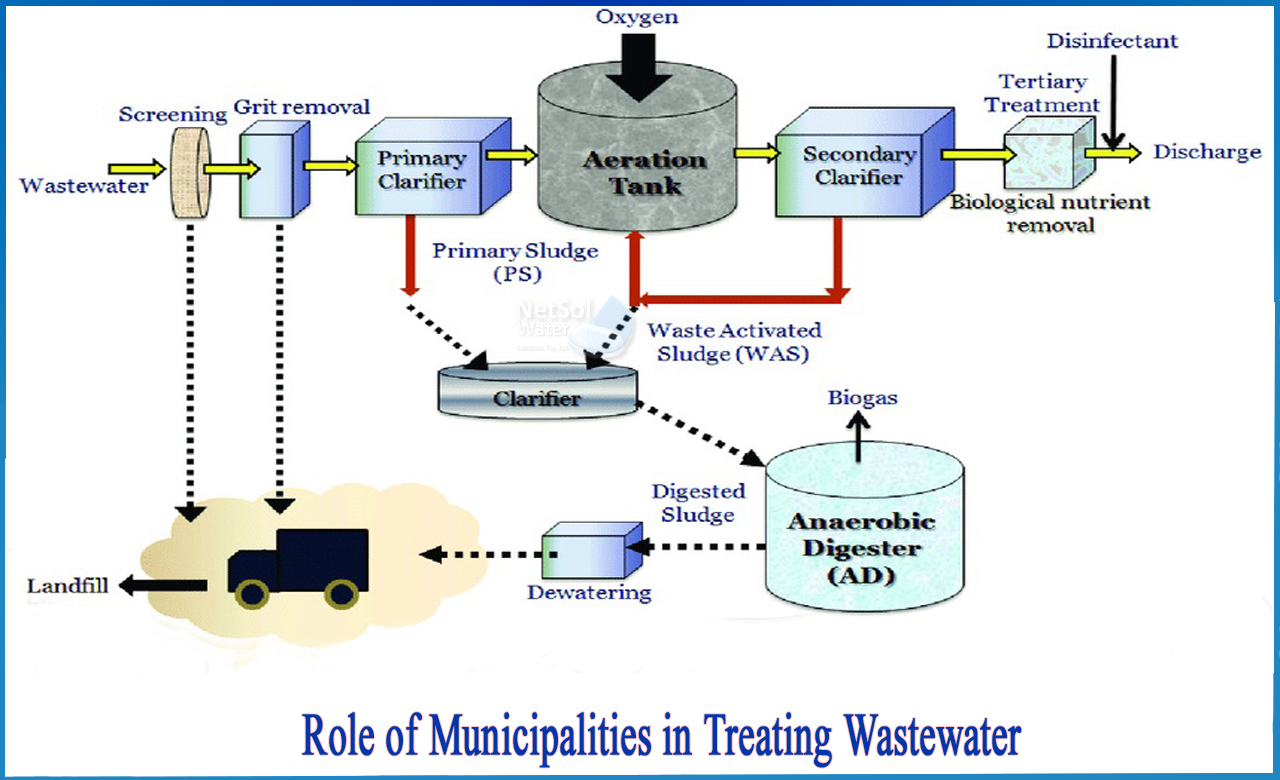The availability of safe drinking water is critical in today's culture. Most people rely on clean water from public sources on a daily basis, even if it isn't at the forefront of their minds. Clean water is most likely provided by municipal water systems in your community.
What is the purpose of a municipal water system?
A municipal water system is a public water supply system that includes a municipal water treatment plant, storage facilities such as water tanks, towers, and reservoirs, and a water pipe network for delivering treated water to residential and business customers.Municipalities require clean water supply. Several technological processes are used in the municipal water treatment process to develop functional municipal water systems.
Here's how municipal water systems ensure that homes and businesses in your area have safe drinking water.
The operation of municipal water systems
In the treatment of municipal water, there are three primary processes.
1-Primary
2-Secondary
3-Tertiary
When water is gathered, including supplies from streams and rivers, primary treatment takes place. Physical pollutants are removed from water during first treatment.
Secondary treatment involves the removal of fine particles and pollutants via coagulation, filtering, and other methods. The key distinction between primary and secondary wastewater treatment is that primary treatment focuses mostly on physical cleaning, whereas secondary treatment includes chemical treatments as well as microorganisms.
Tertiary treatment: pH adjustment, disinfection, and carbon treatments are applied in the final step, or tertiary treatment, at the municipal water plant.
Let us discuss these in detail:
1-The first and most important treatment
The main phase of municipal water treatment consists of five procedures.
>Water must be pumped from its source to the municipal treatment plant using the proper equipment and in a manner that does not taint the supply.
>Screens and filters are used to remove twigs and garbage from the wastewater during the screening stage.
>Droughts and natural biological cleansing can sometimes be accommodated by storing water in reservoirs.
>Water is treated with sodium carbonate to precipitate calcium carbonate in hard-water locations, a procedure known as pre-conditioning.
>Finally, the primary treatment step is completed with pre-chlorination, which involves chlorinating the water entering the facility as part of the disinfection process.
2-Secondary treatment
During the secondary treatment step, a variety of procedures can be utilised to filter and dissolve particles. The municipal water treatment methods utilised will be determined by whether or not the location has hard water, the cost, and any quality requirements that must be satisfied.Coagulation and flocculation clump particles and solids together by injecting substances such as aluminium sulphate or iron, which cause all pollutants to emit a positive charge. Coagulated particles are easy to filter out by settling water or clinging to sand or rock. Chemicals for coagulation are put to a tank with huge paddles and combined with the water.When the water supply is acidic, pH correction is used. To elevate the pH level in this case, lime or soda ash is used. During the municipal water treatment process, slightly alkaline water allows flocculation and coagulation to perform more effectively.
3-Tertiary treatment
Water disinfection is the final step in the treatment of municipal water and is critical for pathogen eradication. Most municipal water systems must maintain a disinfection level in the supply for a specified number of days before it reaches the end user.In municipal water systems, wastewater chlorination is the most prevalent disinfection procedure. To guarantee that the proper levels of chlorination are maintained, this must be done by highly qualified technical engineers.
Another method involves transferring oxygen through ultraviolet light to create ozone. Although it is efficient against protozoans, it has been discovered to have minor quantities of the carcinogen bromate.To avoid sickness and ensure business continuity, authorities must maintain a safe municipal water supply.
It's critical that your municipal water treatment facility be run by qualified engineers and trusted water treatment companies like Netsol Water Solutions and that quality standards are met.
Netsol Water is Greater Noida-based leading water & wastewater treatment plant manufacturer. We are industry's most demanding company based on client review and work quality. We are known as best commercial RO plant manufacturers, industrial RO plant manufacturer, sewage treatment plant manufacturer, Water Softener Plant Manufacturers and effluent treatment plant manufacturers. Apart from this 24x7 customer support is our USP. Call on +91-9650608473, or write us at enquiry@netsolwater.com for any support, inquiry or product-purchase related query.



